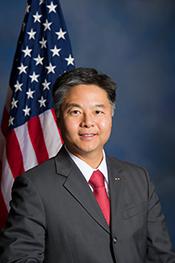0
New Collar Jobs Act of 2023
12/15/2023, 3:58 PM
Summary of Bill HR 3429
One key aspect of the bill is the establishment of a grant program to support partnerships between businesses, educational institutions, and workforce development organizations. These partnerships will work together to develop training programs that align with the needs of employers in the new collar job sectors.
Additionally, the bill includes provisions to expand access to apprenticeship programs and promote work-based learning opportunities. This will allow individuals to gain hands-on experience in their chosen field while also earning a wage. Furthermore, the New Collar Jobs Act of 2023 emphasizes the importance of diversity and inclusion in the workforce. The bill includes measures to ensure that underrepresented groups, such as women and minorities, have equal access to training and job opportunities in new collar industries. Overall, Bill 118 hr 3429 seeks to bridge the skills gap in high-demand industries and provide individuals with the tools they need to succeed in the modern workforce. By investing in training and education programs, the bill aims to create a more diverse and skilled labor force that can drive innovation and economic growth in the United States.
Congressional Summary of HR 3429
New Collar Jobs Act of 2023
This bill provides incentives for cybersecurity education.
Specifically, the bill establishes an employee cybersecurity education tax credit for an employer who incurs costs for an employee who earns a certain cybersecurity certificate or degree. If a business claims such a credit, then federal agencies must award a score increase to each competitive proposal submitted by the business for a federal contract valued at more than $5 million.
In addition, the Department of Education must cancel eligible student loans for borrowers who have (1) made 36 consecutive monthly payments, and (2) held a cybersecurity job in an economically distressed area during at least 12 months of payments.
Finally, the bill makes cybersecurity course instructors eligible for awards under the CyberCorps Scholarship for Service program.




